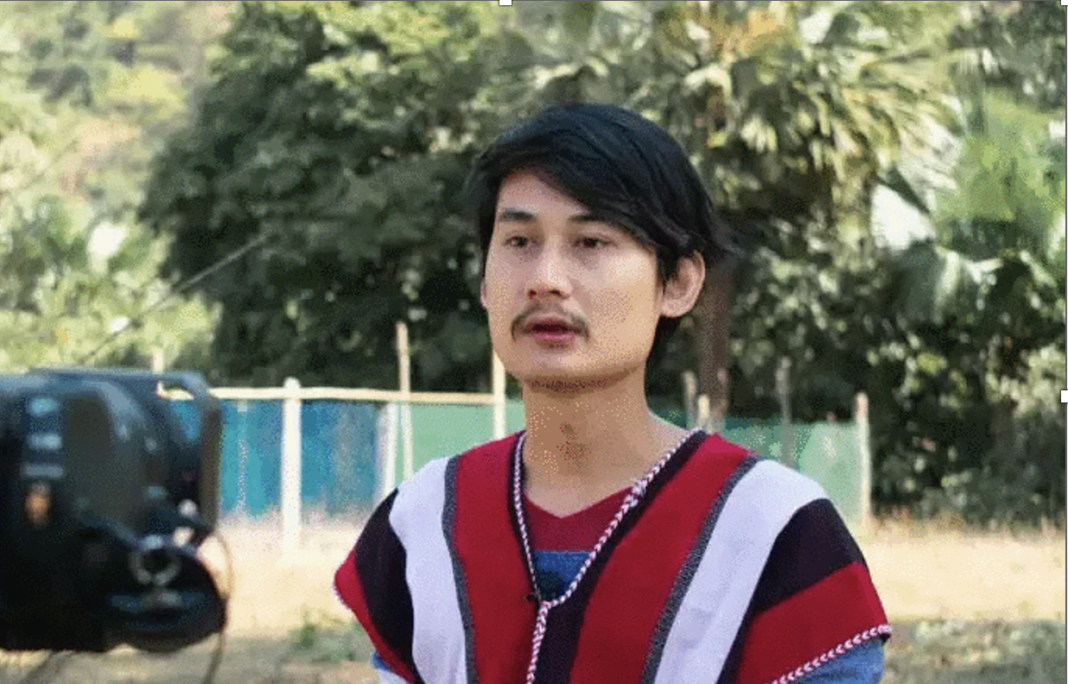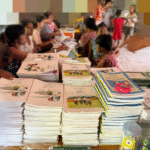An interview with Saw Nanda Hsue, advocacy coordinator of the KHRG
Till date since the coup, the military council and Border Guard Force (BGF) have been carrying out military activities and committing human rights violations in the Kawthoolei area. More than 400,000 people are living in fear and have to flee to safer places, according to the statement issued by the Karen National Union (central) dated 11 May.
The Than Lwin Times interviewed Saw Nanda Hsue, advocacy coordinator of the Karen Human Rights Group (KHRG) about the difficulties being faced by the Internally Displaced People (IDPs) in the KNU-controlled territories, the military council’s human rights violations and necessary humanitarian aid.
Q: First of all, May I know the military council’s human rights violations and military activities in the KNU-controlled territory in late April and May?
A: According to the list of human rights violations committed by the military council in the KNU-controlled territory in April and May, airstrikes, the use of civilians as human shields, killings and tortures continue. Human rights violations are reported in Brigade-1, 2, 3 and 5 territories. The military council carried out the reinforcement of frontline force in Brigade-5. Frontline soldiers destroyed public properties. They are looting the belongings of villagers and burning civilian houses. These cases are taking place in Brigade-1, 2, 3, 5 and 6.
Q: Could you tell me about the situations in Brigade-6 Dupalaryar District?
A: Airstrikes continue in Brigade-6 Dupalaryar District. Indiscriminate shootings and fighting continue. There are arbitrary arrests and brutal killings continue in Brigade-6 territory. Airstrikes and artillery shelling continue to destroy buildings especially civilian houses and religious buildings such as churches and monasteries, hospitals and clinics. We have no exact data about it. At the moment, we can’t say exactly how many houses and churches and monasteries were destroyed. Locals are still fleeing due to indiscriminate shootings and airstrikes. Humanitarian aid is still needed. The displaced locals can’t return to their regions. There is no stability. The IDP camps are still in need of humanitarian aid due to a lack of security. They are still hiding in safer places.
Q: Which districts saw the most human rights violation by the military council in the KNU-controlled territory?
A: Brigade-3, 1, 5 and 6 have the highest number of human rights violations. The main point is fighting continues. Artillery shelling and airstrikes continue. Locals were wounded and killed. The people have to live in fear. Due to continued battles, we face livelihood difficulties. The people are still at risk of landmines. The people can’t travel freely. The army has tightened the rules. In Particular, the transport of medicine is banned. The military council arrests and tortures the people who carry medicine. There are the situations happening in Brigade-1, 3, 5 and 6.
Q: May I know social life, economy, transportation difficulties and insecurity being faced by the locals in Kawkareik Township and Kyarinseikgyi Township, where martial law is imposed?
A: They can’t travel freely. There are restrictions. Locals still face a lot of livelihood difficulties. They face travel restrictions. There are some things that cannot be freely transported. Especially medicines and things like lighters can’t be transported yet. The military council has tightened rules for landmines. Cattles were killed when they stepped on landmines planted by the military council. The military council asked for compensation from the villagers. Landmine risk is still present in Brigade-1,3,5 and 6.
Q: Can humanitarian aid reach all IDPs? What are the difficulties in the supply of aid from the ground?
A: All in all, humanitarian aid to the IDPs is still needed. The supply of aid on the ground is still weak. So, humanitarian aid is still needed, especially to support the people who are fleeing. Due to insecurity, the timely delivery of humanitarian aid to the IDP camps is still weak.
Q: Finally, do you have anything to add?
A: During over two years of the coup, they have no respect for human rights at all. There are blatant violations of international legal standards. These are the things that cause the worst. Human rights violations are happening every day not only in the whole country but also in Karen State. Extrajudicial war crimes and crimes against humanity are happening on a national scale every day. We have to do everything we can to put an end to it. We must put an end to the abuses of dictators. We all need to work together to get justice. It is required to make collective efforts in order that the perpetrators take responsibility and accountability. I would like to say that we need to work together at the national and international levels to end the military dictatorship.
Sent by Than Lwin Times


